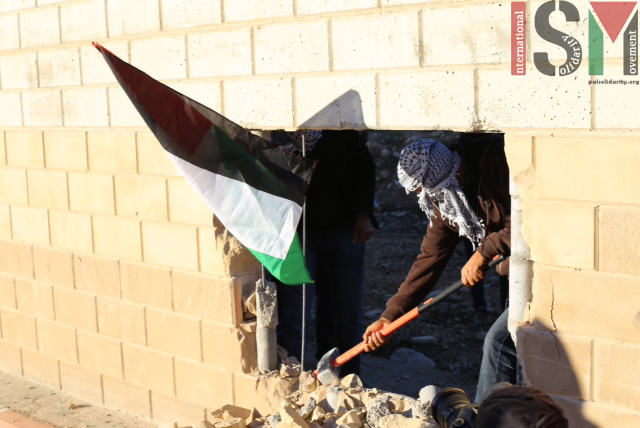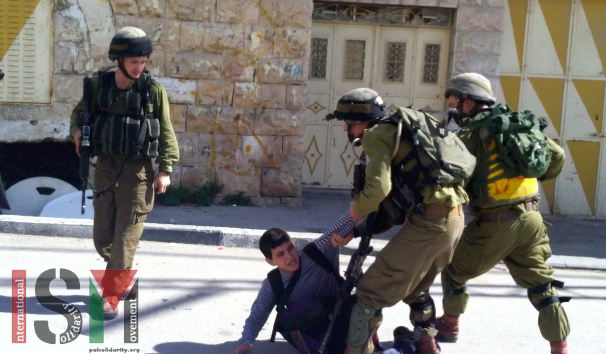Author: ISM Media
-
Israeli forces ignore settler attacking child
9th November 2014 | International Solidarity Movement, Khalil Team | Hebron, Occupied Palestine This afternoon in al-Khalil (Hebron), ISM activists witnessed a Zionist settler push a 10-year-old child to the ground. The settler was driving close to Salaymeh checkpoint, through a group of Palestinian schoolchildren walking home. He suddenly stopped, exited his car, and violently pushed…
-
Palestinian activists destroy section of Apartheid wall
9th November 2014 | International Solidarity Movement, Ramallah Team | Beit Hanina, Occupied Palestine Yesterday, to mark the anniversary of the fall of the Berlin wall today, a direct action took place in Beit Hanina, a neighbourhood in Jerusalem. ISM and international volunteers supported the Palestinian-led action, which involved demolishing a section of the Apartheid wall using…
-
VIDEO: 14-year-old violently arrested in Hebron
6th November 2014 | International Solidarity Movement, Khalil Team | Hebron, Occupied Palestine On October 30th, a 14-year-old boy was violently arrested by Israeli forces in al-Khalil (Hebron). Due to a teachers strike in solidarity with underpaid public workers, school in Hebron finished at 10:00 in the morning. Several young boys threw stones towards the military, armed…



